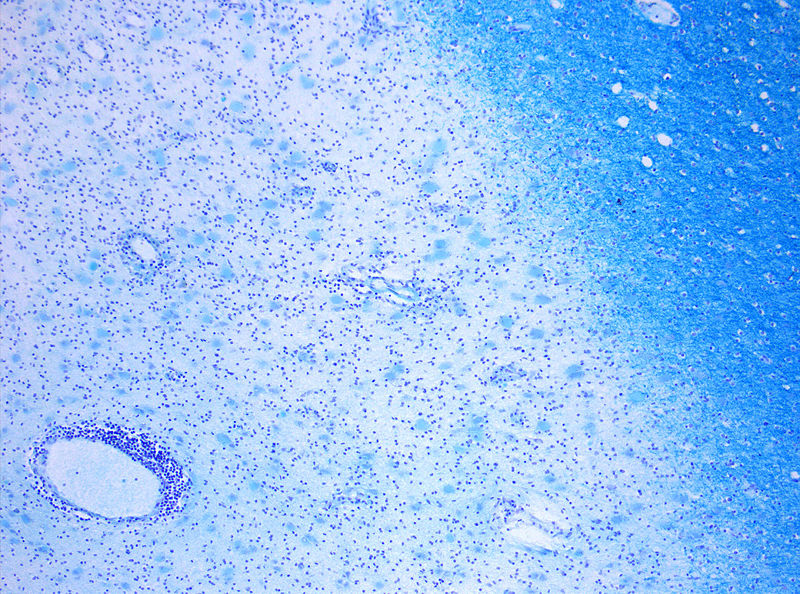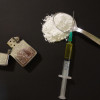A drug that can reverse the damage done by the disease MS (multiple sclerosis) has been  discovered by US scientists.
discovered by US scientists.
Multiple sclerosis affects about 1 person in every thousand. It's a progressively disabling disease caused by the immune system attacking a protective layer called myelin - made by cells called oligodendrocytes - that surround and insulate nerve fibres in the brain and spinal cord.
The loss of myelin causes affected neurones to fail to transmit faithfully the messages that should be passsing along them, leading to sensory, visual and movement problems and, in severe cases, paralysis.
But, there is evidence that, if the immune assault can be curtailed, a population of dormant brain stem cells, called oligodendrocyte precursors, can replace the lost myelin-making oligodendrocytes, leading to the re-insulation of the neurones denuded by the disease symptomatic improvement.
However, these cells appear to be too few in number to adequately replace those lost to the immune attacks, so recovery is incomplete at best.
Now, by screening over 100,000 different drugs, a team in California have uncovered one that strongly stimulates the production of new myelin-producing cells, known as oligodendrocytes, leading to the repair of MS brain lesions.
Ironically, the drug identified by Scripps Institute scientist Luke Lairson and his colleagues, is benztropine, which has been used for years to treat tremor in people with Parkinson's Disease. As such, it is already licensed for human use.
Benztropine works by blocking the action of a nerve signalling chemical called acetyl choline, which also keeps the oligodendrocyte precursors cells that make myelin in a quiescent state.
Interrupting this suppressive signal with benzotropine awakens the stem cells, triggering them to multiply and turn into new oligodendrocytes.
The team made the discovery by incubating the precursor cells with drug molecules in a culture dish before looking for markers of myelin production.
Promising leads were then tested further by growing precursors cells alongside cultured neurones and looking for evidence of successful myelination. When benztropine emerged as the most powerful candidate tested, the team then administered the agent to mice with the rodent equivalent of MS.
Treated animals showed dramatic improvements in their symptoms, and, under the microscope, significant re-myelination had taken place. In some further tests, the team also administered a low dose of immune-suppressing drugs; given alongside the benztropine, this regimen resulted in an even larger clinical benefit.
The researchers nonetheless urge caution. They point out in their paper in Nature, where the work is published, that, "benztropine has significant neurological and psychiatric side effects," emphasising that further preclinical and clinical evalution will be needed before the findings can be translated to the clinic.









Comments
Add a comment